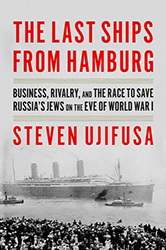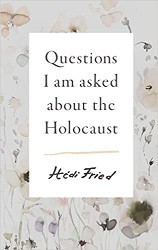In the iconic Jewish immigration tale, brave shtetl dwellers leave eastern Europe for a new life. They struggle and sacrifice but their children triumph, becoming successful middle-class American Jews.Hannah Hahn’s They Left It All Behind offers evidence of darker, more complex aspects of that story.
In this heartfelt, psychoanalytically oriented study, New York-based psychotherapist Hannah Hahn describes the emotional price that many early twentieth-century immigrants paid for uprooting their homes and families. Drawing on in-depth interviews that she conducted with twenty-two elderly adults over more than four years, Hahn contends that large numbers of Jewish immigrants experienced traumatic events, and that they often repressed, disavowed, or kept silent about those experiences. That silence, she asserts, may have led to traumatic feelings being passed to the next generation.
Hahn recounts and analyzes the recollections of her interviewees (ten men and twelve women), all of them the children of two Jewish immigrant parents. The memories are mostly positive, of happy childhoods, often loving parents, nearly painless poverty. But, Hahn reveals through her probing questions, those nostalgic reflections often gloss over highly anxious or depressed parents, oppressive financial insecurity, and barely acknowledged tragedies.
Hahn observes, “I expected I would hear that their parents missed either people left at home or the old ways of life.” Instead, “the theme that I call ‘they left it all behind’ began to emerge. More often than not, the immigrants’ children denied that their parents missed their former homes.” “In many cases,” Hahn proposes, “’they left it all behind’ may have been the children’s own interpretation, a defense that helped them avoid thinking or knowing too much about their parents’ traumatic histories or the losses of migration.”
An obvious question arises: Why interview immigrants’ children rather than the immigrants themselves? The obvious answer: Nearly all early twentieth-century immigrants had died when she began her research. While acknowledging the disadvantages to her method, Hahn sees an upside: “While much has been written about the immigrant generation… the voices of their children were generally eclipsed. As I would come to understand, the children were profoundly influenced by their parents’ difficult lives as immigrants.”
They Left It All Behind is a compelling but demanding reading experience. Hahn tells, in varying depths, the stories of seventeen of her twenty-two interviewees (passing references are made to a few others). The stories are complex and characters return in numerous chapters; it is challenging to keep track of who’s who (though Hahn does include ‘Dramatis Personae’ lists with brief descriptions).
A sticking point for some readers may be the prism through which Hahn evaluates her subjects’ lives; she uses psychoanalytic attachment theory to conduct her study, in which parental trauma is enormously influential in that child’s development. But agree with it or not, They Left It All Behind offers vivid stories and insights into the emotional and mental price Jewish immigrants paid.
Hahn weaves one more story into these pages — that of her own eastern European grandparents immigration. She recalls how little she knew, growing up, of their struggles. Only after they had all died did she begin to understand how momentous their own immigration stories must have been. For Hahn, that personal connection enriched her work: “My interviewees’ stories deepened my understanding of my family’s journey; in turn, my psychoanalytic lens helped me to understand their psychological lives.”



